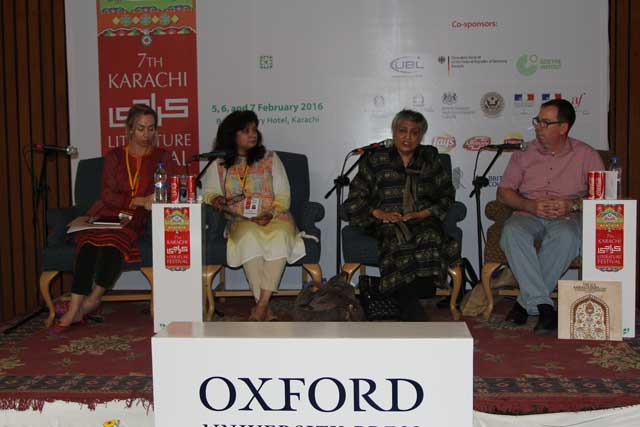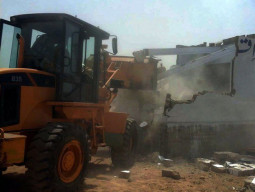
Conserving heritage is a reminder of the contribution and the role of mankind, said Daniel Mattern of the US Ambassador’s Fund for Culture Preservation (AFCP).
The statement set the tone at the session, titled ‘Our History, Our Responsibility’, held on the second day of the 7th Karachi Literature Festival. The speakers at the session include archaeologist Asma Ibrahim, architect Yasmeen Lari and Lauren Tedesco from the AFCP. The session was moderated by Mattern.
Speaking about AFCP, Mattern said that the organisation has supported 19 sites in the country and restored the 400-year-old tomb of Mir Sultan Ibrahim (1556-1592 AD), the ruler of the Turkhan dynasty, and Amir Sultan Muhammad at the Makli necropolis.
On its seventh leg of journey, KLF to award Urdu fiction, non-fiction works
In Pakistan, there are a vast number of sites that need to preserved but the limitation of human resources hamper this, said Tedesco, who has worked in the country for several years. “The destruction of sites is very common.”
Many sites are registered with the department of archaeology, however there is an absence of trained staff, said Ibrahim building on the point raised by Tedesco. “If a monument needs conservation, it requires detailed analysis and investigations which are largely ignored in our country due to lack of expertise.”
Recognising this predicament, Lari advised that the society needs to develop a sense of protection towards their vast reserves of heritage. “Unless we bring the task in the domains of others, our precious heritage will continue to be lost.”
Speaking about the importance of conserving, Ibrahim said that though it may generate a lot of debate and controversy, it is part of the culture that needs to be passed onto the next generation, otherwise our identity will be lost. “Unless a society or community does not preserve its roots, we cannot move forward.”
Tedesco added that conservation carries several micro- and macro-level benefits that need to be accounted for. She said that these monuments are signposts for a community, they represent a point of reference in a historical narrative of a region. “Similarly at the macro level, Pakistan’s sites are important for a global historical narrative because if they are not preserved, then history becomes prone to distortion.”
Lari emphasised on creating awareness among the youth of the importance of each heritage site because it is a point of pride. “Experts are failing because they are not passing their knowledge, we are only custodians, and we need to pass it on to our children.”’
The panellists agreed that the way to move forward and a long-term solution to the problem of heritage destruction would be proper capacity building. They asserted that there needs to be a mechanism to train the society to converse its heritage.
Published in The Express Tribune, February 7th, 2016.



1732259077-0/carti-(1)1732259077-0-165x106.webp)













COMMENTS
Comments are moderated and generally will be posted if they are on-topic and not abusive.
For more information, please see our Comments FAQ